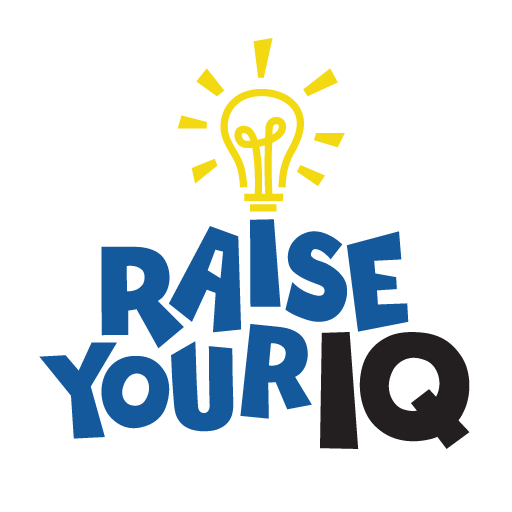Introduction to Brain Training for Kids: Insights from Dr. Sarah Cassidy
Those of you that know me professionally will know that my usual topics for discussion include educational psychology and applying the principles of behaviour analysis in every day settings and how RFT can raise your IQ or increase your intellectual skill sets. However, what you may not know is that brain training for kids and educational interventions are actually only important to me for their power to remove barriers that get in the way of human learning.
Education is supposed to be the great leveller- a tool that allows people born into less than perfect circumstances to rise above what society might have predicted for them. It is supposed to be the gateway that leads to living our best lives.
Of course, our first teachers weren’t in school. Our first teachers were at home and chances are, they were not trained for that job.
The Role of Parenting in Brain Training and Education for Children
I think back to my own experiences with a highly educated mother who modelled a love of reading with every fibre of her being and was happy for us to read until the wee hours and for us to read on any topic that interested us, as well as being more than happy to indulge what others might have considered wildly age inappropriate discussions on any topic of our curiosity because she felt that this was how children learned and that if we were wise enough to ask the questions, we were mature enough to receive the full explanations.
She respected our interest and curiosity and trusted that we would always do our best and that our best was always going to be enough. She gave us a comprehensive model of human respect that I’m not sure I’ve ever read in any psychology text book. When another person made a mistake, she often said that maybe they were doing the best that they could do.
In an equally important vein, my father taught us that we were extremely lucky to have the good fortune we had and that we must always appreciate our advantage and that we must always work hard to do well in life. He taught us his great love of nature and the great outdoors. He taught us to value the earth and to respect all its people. He often said, you never know what a person might be going through and you never know what it might be like to walk in those shoes. He taught us to always do someone a favour if we got the chance because you never know when the day might come that you might need a favour. You see, my father had grown up as the 13th of 14 children and they didn’t often have shoes and food was often a luxury item.
His appreciation for every small gift that life gives him has never left him, even as he now approaches his 80th birthday this year. When he talks of his childhood, he doesn’t talk much of hunger. His stories are full of adventure and playfulness. He talks of appreciation for the kind deeds of his neighbours who often sustained his family when there simply was no food. He talks of the camaraderie and love that he held for, and with, his siblings, but most especially for his own mother.
While my parents’ approaches to parenting were very different from each other, much as their childhoods and familys were starkly contrasted, there was one thing they each believed passionately and this was that human beings – even the small ones – deserved respect. What that taught me was that if you want someone to act differently, you can respectfully ask them to act differently, as opposed to demanding it of them. It taught me that it’s reasonable to assume that people have the capacity to act differently or that if they don’t yet know something, then you can just teach it to them or that they will learn when they are ready. The one thing my parents did not do was coerce us.
Personal Reflections: How My Parents' Teaching Styles Influenced Brain Development
What has all this got to do with RFT? Everything. Without knowing it, my parents had given me millions of examplars on how to treat other human beings. They put each of the human beings in any situation on equal standing to the next human being. From these exemplars, we derived that no person’s opinion was worth more or less than the next. This meant that the poor man was every bit as worthy as the rich man. This meant that if you worked hard and acted respectfully towards other people, that you would do well in life. This is what organized their behaviour and as a result, myself and my siblings received an unlimited supply of multiple exemplars on treating folks as equal and on working hard to succeed. Our behaviour was not under aversive control and we were not constantly avoiding punishment. There was no need. Curiosity and hard work were rewarded and we became seekers. This kind of parental messaging sets the stage for effective learning and development in all areas.
Certainly, my parents were ahead of their time in many ways. In 10 years’ worth of lecturing on child development, I’m constantly struck by how much my parents engaged in effective practices of teaching and parenting, without ever having the benefit of having studied the literature base. My parents nurtured, rather than coerced.
As I reflect on this, my parents were an anomaly in their time. What would have been the norm in my parents’ time was coercive parenting and coercive teaching. In fact, my father went to a school system where corporal punishment was the norm. The fingers on his poor left hand are still mis-shapen from all the times it was caned because of him being a left-handed writer. Beatings from his own father were also a fairly common and largely accepted practice. My mother was a baby boomer and had approximately 50 children in her classroom run by very strict Irish Catholic nuns. Coercion was the norm there too. Her parents had lived through the depression. Nobody questioned the church. Nobody. They all grew up in Holy Catholic Ireland. And in the house my mother grew up, nobody questioned her mother. Nobody. Back in Ireland, ‘The Troubles’ were not just in history books; they were a real part life and my father lived with all of this as a backdrop to his childhood.
For both my parents and their Grandparents, coercive teaching and parenting were not merely tolerated, they were the recommended strategies for fostering compliant behaviour. And in the context of war, depression and poverty, this isn’t surprising. But my question now is this, is that all we want from our children? Surely we should aim a little higher than just “Do what you’re told”.
Applying Behavior Analysis and RFT in Brain Training for Kids
Part of my job across the last 10 years has been training teachers and psychologists in university about child development and educational psychology. For the past 20 years, I have been working in Irish schools, conducting assessments and advising parents and teachers and school principals how to foster successful learning environments and how to manage challenging behaviours. In all of the research I read, I see that I was indeed very lucky, not just to have food on my table and shoes on my feet, but mostly, I was lucky because my parents modelled respect, dignity and equality. My mother claims that this was easy because we were such good children, but I reckon, we were such good children because respect was modelled to us in consistent ways, across a great many contexts from the day we were born. We were also lucky because it was always assumed that we would do well and that if we didn’t know something, we just didn’t know it yet (See Malcolm Gladwell’s book Outliers on why holding this position as part of our verbal rules would benefit a child in their ability to persist with difficult tasks).
After living with this type of indirect verbal conditioning for most of my life, you can imagine my shock after having my first child to discover that parenting was REALLY HARD WORK!! After having two more children and juggling a career and a marriage as well, I started asking my mother how on earth, did she manage to raise 5 children whilst still wearing those rose coloured glasses? Her response was simple, she didn’t work outside the home. Even then, the message was never ever delivered that children might be hard work or a cross that must be borne. She just assumed that maybe my other responsibilities were so immense that it might make the parenting job sometimes hard for me.
Well, unfortunately, I missed the sale of all those rose coloured glasses, and whilst I admire both of my parents authentic and genuine admiration of children, I know that most modern parents, like myself, probably often struggle with this role. During the current pandemic, this struggle has perhaps never been greater. Why is this? There are lots of reasons. Firstly, we are wearing too many hats.
Even during ordinary times, it can be challenging to get all the things done. For parents who work, their day often begins long before their non-parent colleagues because they often have to get small children, dressed, fed and delivered to schools and creches. When they leave work, they then have to cook for, feed, teach, bathe, pajama, read stories, ensure boring things like teeth are brushed and that these small ones are actually going to bed when they’re supposed to.
Then comes all the other jobs like getting school uniforms and lunches ready for the next day, preparing the envelopes with the signed permission slips for school tours and the extra fees for art supplies, not to mention contacting childminders to let them know about later pick-up times for changes in schedule due to said school tours or additional art classes. During Covid-19, many of us are now also doing the teaching during the day, which most of us aren’t trained for, plus doing our actual jobs, but remotely, without the benefit of the quiet of the office or the assistance of other staff members.
Others aren’t able to work at all and this is likely causing enormous financial stress for a great many folks. And some of us are also caring for elder or vulnerable family members on top of all of this or working in a job treating persons that have become very ill. The stress builds layer upon on layer, no matter which boat you’re in. So if we were wearing too many hats before Covid-19 came to town, our heads and necks can’t sustain the weight of all the extra hats we’ve now added to the pile.
In the area of my own parenting and my work with other parents, I’ve been very lucky too. I’ve had the fortune of being mentored by the extraordinary, Dr. Lisa Coyne, who has taught me so much about working with children and families and especially about this heroic job of parenting.
Authoritative vs. Authoritarian Parenting: Implications for Brain Development in Children
At my clinic (The Smithsfield Clinic), we’ve been running the parenting course she developed with Dr. Evelyn Gould a number of years ago. This course has been necessary for the families that attend my clinic because parents experience lower emotional well-being (McLanahan & Adams, 1989), less frequent positive emotions (Simon & Nath, 2004), more frequent negative emotions (Ross & Van Willigen, 1996), lower marital satisfaction (Somers, 1993), and greater depression (Evenson & Simon, 2005) than non parents do and this is outside of parenting those with special educational needs or emotional/behavioural difficulties. And this is before we were experiencing a global pandemic where stressors are much higher and may remain high for an unspecified amount of time. The type of parenting we’re doing thus becomes increasingly more important as the number of hats we’re wearing increases exponentially. Our usual routines that might lend a sense of predictability to our children and family situations have disappeared.
One issue that seems important to note here is that how children come to associate aversive interactions with a sense of predictability is perhaps not captured by an operant conditioning model (Coyne & Cairns, 2016). Strict operant models do not appear to address the private experiences of parents or children and how these influence their observable behaviours. So how do we know what is organizing this behaviour if we can’t observe it? RFT can provide an account of these more indirect verbal processes by describing how language enables us to be in the presence of painful or stressful stimuli psychologically even when the stimuli aren’t physically present (Hayes, Barnes & Roche, 2001). This is rule governed behaviour at its finest and we parents would benefit from harnessing the power of rule governed behaviour to move from aversive to appetitive control. Many of us, particularly when under stressed conditions or chaotic times, use coercion to get all the things done. For example, “Put your pajamas on, wash your hands and face and brush your teeth by 8:30pm or there will be no time for stories”. This is aversive control and tends to be insensitive to other cues or information that might be present in a given environment. We could achieve an identical outcome by using appetitives. “If you get your pajamas on and your hands and face washed and your teeth brushed by 8:30, then we’ll have time for stories”. This simple reframing can move parents away from coercive practices and allows both parents and children more flexibility to choose and thus develop more flexibility in their repertoires of responding. When parents are fused with their private verbal rules about parenting, they are less able to track how much more effective appetitive practices are, not just for that one night, but for shaping up a child’s ability to track their own behaviour across time and learn to generalize more effective ways of responding in other demand situations. In the school systems, we tend to use the harshest forms of punishment for kids with the most severe levels of problem behaviour and interestingly, it works the least well for this cohort of students. Not only that, but punishment fails to teach or establish new/ alternative behaviours to replace the problem behaviour. Moreover, punishment can be socially stigmatizing (Alberto & Troutman, 1999, Vargas, 2009).
Of course, this is not actually new information. Diana Baumrind’s work on parenting styles (Baumrind, 1966, 1967) talked about how authoritative parenting showed better long term outcomes than authoritarian parenting because while the coercive style of the authoritarian parenting yielded high compliance in the presence of the authority figure, it was not associated with long term achievement or compliance. In other words, the authoritarian parent likely became an aversive control cue which meant that the child complied but only while the authoritarian figure was present. Not only is this not effective in any long term ways, we also now know that using coercion is a harmful practice (Coyne and Cairns, 2016). In contrast, we know that contacting parenting values helps to generalize skill sets beyond the clinic setting (Coyne and Wilson, 2004) and indeed this seems a much more important and worthwhile endeavor than just merely gaining compliance.
The Importance of Self-Compassion in Parenting and Brain Training for Kids
Another important piece of information for parents’ consideration comes from Kristen Neff’s work on compassion where she found that self compassion is positively associated with life satisfaction, hope, and goal engagement and negatively associated with depression and parental stress (Neff and Faso, 2015). Thus, self compassion seems to be a very useful tool for defusing parents from situations where they might be under the aversive control of their own private rules around what good parents should and should not do, and during the unpredented stress of global pandemic, there was perhaps never a better time to learn these skills.
Adapting to New Challenges: Brain Training Strategies for Kids During Extraordinary Times
In Coyne and Gould’s Praxis webinar An Act Approach to Parental Burnout (view video below), there are numerous small ACT practices (like mindfulness and self compassion) taught which seem particularly important for parents to learn in these strange and unpredictable time we find ourselves in. By using these types of practices, we can transform the stimulus functions of this current pandemic from being an intense and chaotic and difficult time to perhaps one where we are viewing the chance to spend this much concentrated time with our families as one of opportunity to slow down, to reflect, to cherish.
The RFT conceptualization of coercive family process adds precision and scope to operant and classical conditioning accounts. Addressing the verbal or symbolic processes of parents is essential to a more nuanced understanding of the relative value of reinforcers and punishers in the family context. Now, more than ever, as the vast majority of parents are being asked to be teachers, it is critical that the messages we teach our children foster long term growth and healthy development in all arenas. It is not enough to demand that our kids should learn or do the things we want or need them to do, we also need to cultivate the conditions where this is most likely to happen. And we need for this learning to generalise far beyond this moment, this classroom, this clinic, this family, this crisis, this life. This won’t happen with coercive practices. The tools we need to grow and shape our children going forward in these chaotic times might be better conceptualised as the tools of a gardener, rather than those of a carpenter or a wood cutter. After all, as I recently heard Dr. Darin Cairns say, “You can’t grow a tree if you keep chopping it down”.




